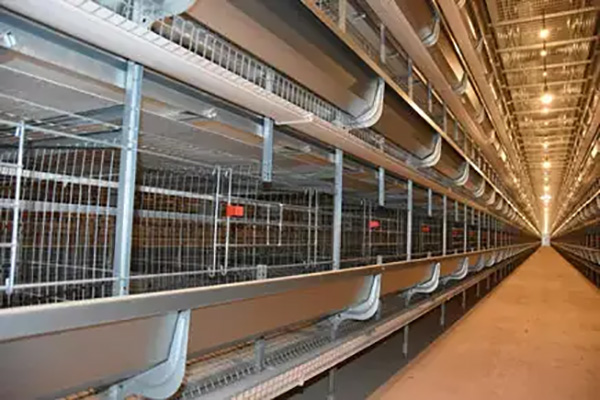The Impact of Temperature Control on Egg Production in Uganda Chicken Farms
Time : 2025-06-26
The poultry industry in Uganda plays a vital role in the country’s economy, providing a significant source of protein for the population and contributing to food security. Among the various factors that influence egg production, temperature control stands out as a critical factor that can significantly impact the productivity and profitability of chicken farms. This article delves into the importance of temperature management in Uganda’s chicken farms, exploring the effects on egg production, the use of professional poultry equipment, and the best practices for maintaining optimal conditions.
Introduction to Temperature Control in Chicken Farms
Temperature is a crucial environmental factor that affects the growth, development, and productivity of chickens. It plays a pivotal role in egg production, directly influencing the laying rate, egg quality, and overall flock health. In Uganda, where the climate is characterized by hot and humid conditions, managing the farm’s temperature becomes even more challenging and crucial.
The Effects of Temperature on Egg Production
1. Egg Laying Rate
The laying rate of hens is highly sensitive to temperature changes. Research indicates that a slight increase in temperature can significantly reduce the laying rate. Conversely, lower temperatures can lead to a decrease in egg production. Maintaining the optimal temperature range, typically between 18°C to 23°C (64°F to 73°F), is essential for maximizing egg production.
2. Egg Quality
Temperature fluctuations can also affect egg quality. High temperatures can lead to increased shell thinning, yolk abnormally, and a higher risk of internal quality issues. On the other hand, lower temperatures can result in a lower albumen content and a higher risk of chilling injuries. Consistent temperature control ensures that the eggs meet the desired quality standards.
3. Flock Health
Temperature extremes can stress the birds, leading to reduced immune response and an increased susceptibility to diseases. Proper temperature management not only enhances egg production but also contributes to the overall health and welfare of the flock.
Professional Poultry Equipment for Temperature Control
To effectively manage temperature in chicken farms, the use of professional poultry equipment is essential. Here are some key pieces of equipment:
1. Climate Control Systems
Climate control systems are designed to maintain the desired temperature and humidity levels in poultry houses. These systems can include heaters, fans, and evaporative coolers, which work together to create a comfortable environment for the chickens.
2. Automatic Thermostats
Automatic thermostats are crucial for precise temperature control. They automatically adjust the heating and cooling systems based on the current temperature, ensuring that the flock remains in the optimal range.
3. Humidity Controllers
Humidity is another critical factor that affects egg production. Humidity controllers help maintain the appropriate humidity levels, which is typically between 50% to 70%, to prevent heat stress and respiratory issues.
Best Practices for Temperature Management
1. Monitoring and Recording
Regular monitoring of temperature and humidity is essential. Using data loggers and temperature sensors can help farmers keep track of the environmental conditions and make necessary adjustments promptly.
2. Insulation
Proper insulation of poultry houses can prevent heat loss during cooler months and reduce heat gain during warmer months. This helps maintain a stable temperature throughout the year.
3. Natural Ventilation
Natural ventilation can be an effective way to control temperature, especially during cooler periods. However, it must be managed carefully to prevent drafts and temperature fluctuations.
4. Training and Education
Staff training on the importance of temperature control and the proper use of equipment is crucial. Well-trained personnel can ensure that the systems are functioning correctly and make timely adjustments as needed.
Conclusion
The impact of temperature control on egg production in Uganda’s chicken farms cannot be overstated. By implementing effective temperature management strategies and utilizing professional poultry equipment, farmers can maximize egg production, maintain egg quality, and ensure the health and welfare of their flocks. As the poultry industry continues to grow in Uganda, investing in proper temperature control will be key to its success and sustainability.
Tags












